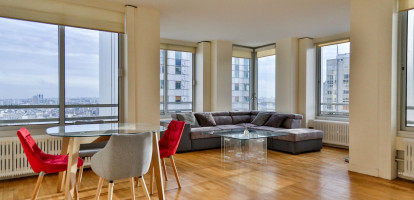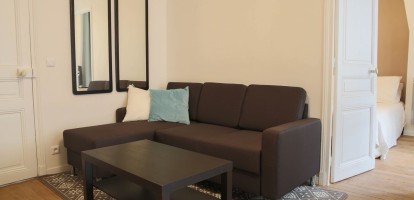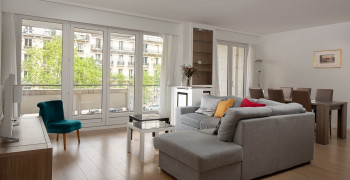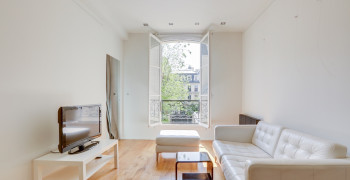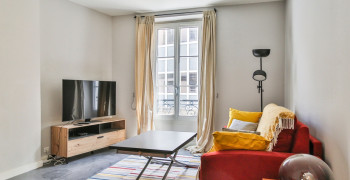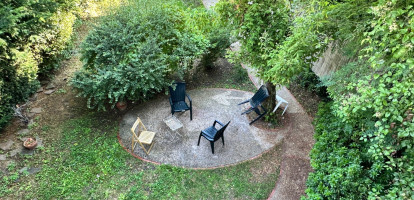Definition of a Security Deposit in case of a furnished rental
A security deposit is required by the landlord to “guarantee the rental obligations of the tenant”. It is used to secure funds for any situations outside of normal wear-and-tear, including repairs or deterioration of the property and its furnishings, and, if applicable, any unpaid rent.
Please be aware that the last month's rent cannot lawfully be withheld to recover part of the security deposit.
Amount of Security Deposit
The security deposit usually corresponds to two months of rent for furnished rentals.
- Code Civil Lease: 2 months of rent, including recoverable rental charges
- Loi Alur Lease: 2 months of rent, excluding rental charges
Making interest on security deposit
The security deposit amount cannot be increased during the duration of the lease, even if the lease is renewed multiple times. This means the landlord can only raise the deposit amount if the market conditions or inflation changes are the same. However, the landlord is allowed to earn interest on the deposit. Since the deposit remains fixed and is not subject to increases, the landlord can benefit from the interest accrued on the amount held. The interest is typically calculated at a rate the bank determines where the deposit is held.
Return of the Security Deposit
When the final walkthrough (in French, état-des-lieux) is perfectly fine, the security deposit must be returned within a month. If there are any pending issues during the walkthrough, the security deposit can be returned to the tenant within two months, starting from the date the tenant returned the keys to the owner.
Deductions of Security Deposit
At the end of your stay, the final walkthrough (état-des-lieux de sortie) provides the grounds for comparison of the apartment's state with the initial walkthrough (état-des-lieux d'entrée). This inventory of the premises is performed in the presence of the tenant and the owner or a representative of either one.
This comparison will establish whether deductions must be made for damage and necessary repairs. Also, any outstanding rent or pending housing tax (taxe d'habitation) would be deducted at that time.
If the security deposit is not returned in full, the owner must justify the deductions (receipts and/or estimates of any repairs or replacement of damaged or lost items, etc.).
Please note: Should a dispute arise if the owner decides not to carry out the repairs and/or replacements, the judge will determine if the sums retained from the security deposit are relevant based on proof (such as photos) and estimates provided for repair.
Tardiness in Returning the Security Deposit
The landlord has one or two months to return the deposit for furnished rentals. If the tenant does not receive the security deposit within this timeline, the tenant should send a registered letter to the landlord explaining that he has exceeded the time allotted and that s/he owes him the security deposit plus 10% interest for each late month.
If the landlord still does not return the deposit, the tenant should contact can contact the commission de conciliation à Paris. It's free. Usually, this step is enough to ensure a satisfactory agreement between the landlord and tenant, and the conflict stops there. If it is not the case, the tenant can contact the tribunal with the decision of the Conciliation commission in hand.
Which Court should the tenant contact?
As the tenant, you can contact the judge of home rental affairs at the "Tribunal d'Instance" of the area where the apartment is located.
Simplified procedure for the declaration to the tribunal
If the amount of the security deposit is under 4,000 €, you can start what is called a "procédure simplifiée" on https://www.demanderjustice.com. You and the landlord will then be asked by a registered letter to come to the tribunal at a specific time. It is rather simple, and the cost is minimal since you do not need a lawyer.
When in front of the judge, you can ask for additional compensation for damages or loss sustained.
The summons for interim relief (L’assignation en référé)
If the amount of the security deposit exceeds 4,000 €, you must send an assignation, which will be prepared and delivered by a "huissier de justice" to the landlord. It is not mandatory to hire a lawyer, even if the lawyer would contact the "huissier" on your behalf.
On the day of the hearing, the judge will listen to the two parties (or their representatives). Be concise. When the judge feels he has all the elements, s/he will put the affair en délibéré, and s/he will render a final judgment in the following weeks.
For foreigners returning to their country, such procedures may be out of the question. Fortunately, this situation does not happen too often. Usually, a registered letter is sufficient enough to resolve the dispute. Also, do not hesitate to ask the apartment rental agency where you found the apartment for assistance. The agency can help by contacting the landlord.
credit photo @Andre Taissin
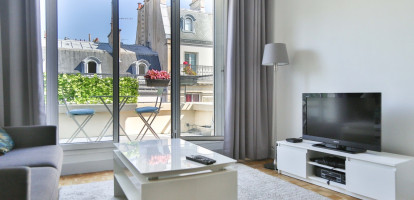


 Français
Français


